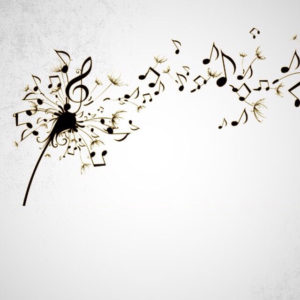You have no items in your cart. Want to get some nice things?
Go shopping There was this section of Dvorak’s Symphony No. 9 he could play—a little piano riff from the largo movement he’d kick out when he thought about that woman he knew he shouldn’t think about at his real job. He feared there he might hurt. Hurt someone. Hurt something. Might lose his job for being distracted, messing up. But here, long after all happy hour suits left, when the regulars were keeping their heads down, when Cubbie was counting money and glasses and filling coaster holders, and right before last call, he played it. It felt right then. It felt like a Crown Royal rim, licked wet.
There was this section of Dvorak’s Symphony No. 9 he could play—a little piano riff from the largo movement he’d kick out when he thought about that woman he knew he shouldn’t think about at his real job. He feared there he might hurt. Hurt someone. Hurt something. Might lose his job for being distracted, messing up. But here, long after all happy hour suits left, when the regulars were keeping their heads down, when Cubbie was counting money and glasses and filling coaster holders, and right before last call, he played it. It felt right then. It felt like a Crown Royal rim, licked wet.
They had met in the hallway of this place when he was much younger and she was broken, a waft of warm whiskey. She fell onto him, like sound itself, continued to strike him, for three months like a felt hammer, soft and hard. She was both strings and percussion. He knew he didn’t love her. He loved his wife, the woman having daughter after daughter, the woman filled with milk and kindness, open eyes and smile, his soft pedal, his una corda.
But lately, and for some time now, he’s considered it may have been the only time he’d really felt love. What he lived before and after her—with his wife and daughters—was commitment. A completely different pedal. Different effect. Different sound altogether. Love with this woman he met in the hallway offered more octaves, hidden extra keys below hinged lids.
Since those nights when this woman taught him about another place where sorrow was sharp, and laughter was insanely regular, and movement between emotions so quick and surprising it left him spent, he had to learn to shift back to his life, his place, his contract with level responsibility. And with this move he’d grown closed and heavy, burdened with life, a home full of girls who became women, wives, mothers and then, slowly and quickly left him.
His wife fretted over the dotted harlequin bugs on their cauliflower plants, the hairline faults of their plastered ceiling. So, he scraped off the black and white eggs, lined up like little keys on the undersides of leaves. He spackled.
But he allowed a small spot for this woman he’d met in the hallway.
It was just that lately the memory of her broke through that placed where it was tucked safely in his head. She poured out of him somewhere above his ear. Left a gaping hole there his wife was sure to notice, again. He was becoming reckless with despair restoring jacks and hammers, capstan screws. These broken pianos reminded him, too often, of her, this unsteady steady woman who made him liquid and tender.
His wife’s name drew him in first. Her father, his instructor, mentioned her one day as he practiced Chopin’s Preludes, No. 7, A minor. Octava was nineteen; he was twenty-one. After their first date—tickets her father could not use to the symphony—they played chopsticks, her fingers stumbling over the keys, the side of her arm barely brushing the side of his. “She’ll be your metronome,” her father had said, toasting them at their wedding.
Just a few weeks into it with this woman in the hallway, his wife found out. She said she understood, said she’d allow him to leave her if that’s what he needed. But he stayed. Left playing piano at that bar every night and took on two jobs, one tuning and repairing uprights and Grands, and one cleaning long hallways of the music hall with a mop and rolling bucket of grey water. He made enough money to take good care of his wife, his girls, and still played just one night a month, only for tips. She allowed him this, reluctantly.
And so once a month he remembers when he fell in love, when he just played piano. And, the woman? She sweats his drink, slides beside wispy sheets of music, waves around his head, a sound riding on perpetual sustain. And when he’s done, when he’s had enough, he walks home, unlocks the door, and finds his way back to his bed, his wife, and lays this open spot of his head on the pillow.

About Jolene McIlwain
Jolene McIlwain’s writing appears online at The Cincinnati Review, Prairie Schooner, River Teeth, Atticus Review, Prime Number Magazine, and elsewhere. She’s had work recently nominated for the Pushcart Prize and Best Small Fictions and selected as a contest finalist by Glimmer Train and Arts & Letters, and semi-finalist in Nimrod’s Katherine Anne Porter Prize and both American Short Fiction’s Short and Short(er) Fiction contests. She lives with her son and husband in the hills of the Appalachian mountains in western Pennsylvania.





Lovely. Poignant, yet made me smile. I wanted to both punch this man and give him a hug. You made me feel a spectrum of emotions. So well done!
Now this is all we want to get here.